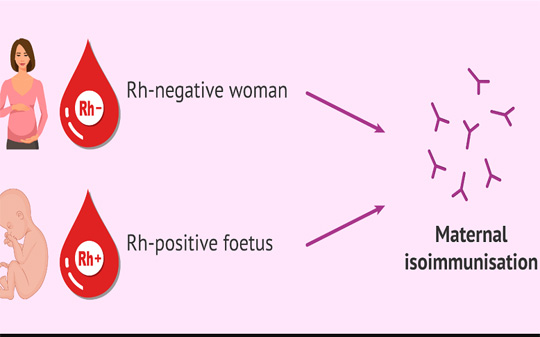Same blood group of the spouses a risk for the kids?

- Update Time : Sunday, 18 February, 2024, 04:05 pm
- 87 Time View

Online Desk: Nowadays, many things are factored in while deciding on a marriage proposal. These are more important for arranged marriages since families are more involved in decision-making.
Compatibility is a key issue, and many argue that the prospective bride and groom should share similar values and interests for potential happiness. There are voices advocating for compatibility in terms of biological factors, i.e., blood group, as well.
There are four major blood groups: A, B, AB and O. Most of us belong to any one of these. Now let us get one thing straight: for marriage, it does not at all matter whether the bride and groom have the same or different blood group. It is not connected to the future outcome of their marriage and conception.
Nevertheless, there is one thing about the blood that can affect the couple when they plan to have a kid: the absence of the rhesus factor (Rh). This is a protein which, if present, is found in the red blood cells (RBC). People who carry it are called Rh-positive; those who do not are categorised as Rh-negative. Rh factors are determined genetically, and the Rh-positive people constitute the majority.
One of the major goals of marriage is to produce offspring. To better protect their health, it may be important to know the Rh status of the potential partners. If neither has any Rh-negative gene, the baby will surely be Rh-positive. In case anyone has a Rh-negative gene, there are several possibilities, including the Rh-negative blood of the baby. When both of them contain only Rh-negative genes, the only probability for the baby is to be Rh-negative.
When the prospective bride is Rh-negative and the groom is Rh-positive, this is known as Rh incompatibility. This is a risk for future pregnancies. When this couple conceive, there is a high likelihood that the fetus will receive Rh-positive blood from the dad.
It has been found that about 50% of the kids born to Rh-incompatible parents are Rh-positive. Cells containing the Rh factor from the baby may cross into the mother’s blood. As the mom does not have those factors, her immune system will recognise it as foreign and produce antibodies capable of destroying those.
During the first pregnancy, there is generally no problem since this was the first time the mother’s blood encounters the foreign cells and makes the antibodies. For subsequent pregnancies, however, these antibodies will go into the baby’s blood while it is still in the womb.
If the baby is Rh-negative, there is no health issue. But in the case of a Rh-positive body, the antibody will attack red blood cells carrying Rh proteins, causing them to rupture. The resulting disease is called hemolytic or Rh disease of the newborn.
Because of the risk to the baby’s health, the Rh status of the parents is always assessed during the pre-natal check-ups. For Rh-incompatibility, physicians will do a test in the later stages of pregnancy to check if the mother has started to develop anti-Rh-antibodies. This will imply the presence of a Rh-positive fetus.
Rh incompatibility should not be a factor in turning down a marriage proposal. It is quite easy to manage this, preventing any detrimental effects on the baby. The doctor will recommend Rh immune globulin (RhoGAM), which works like a vaccine. This will be administered in the seventh month of pregnancy and repeated within three days of delivery.
The objective is to neutralise the ability of the immune system of the mom so that it does not produce antibodies against the Rh-positive blood of the fetus.
Sometimes, the pregnant mother comes to the physician at a late stage with Rh antibodies already in her blood. Under those circumstances, careful monitoring until the baby is delivered must be ensured. If the level of antibodies is very high and endangering the life of the baby, a procedure called exchange transfusion can be performed before or after birth.
Knowing the blood group of the spouse is important. But it should not be the basis of marriage decisions. Differences in the ABO blood group are completely irrelevant for that purpose. Rh incompatibility is relevant for conception but must not be a deal-breaker.
















